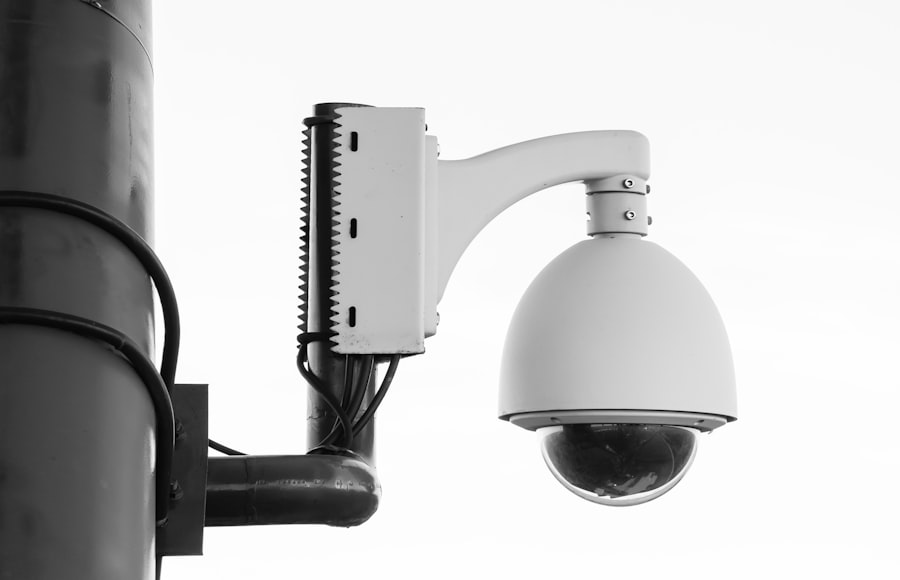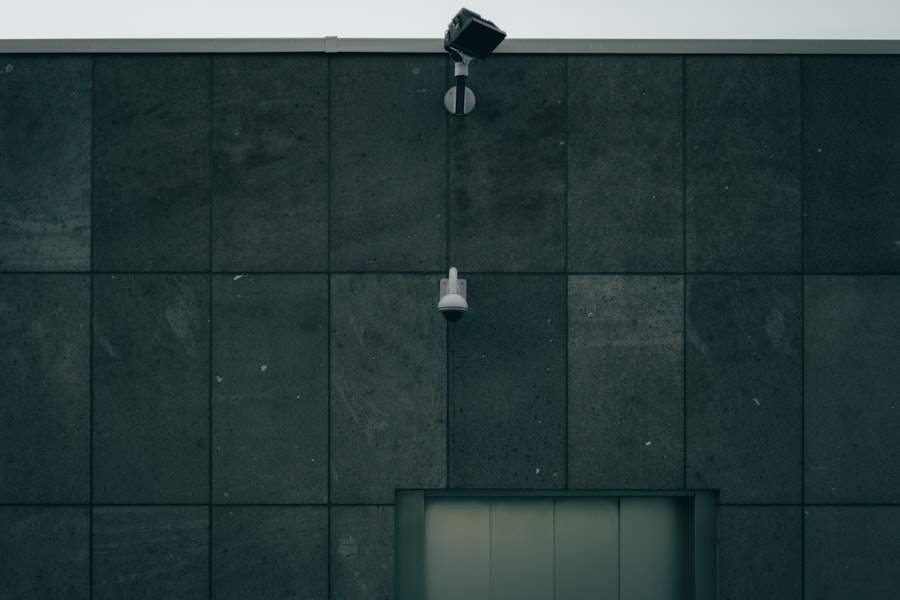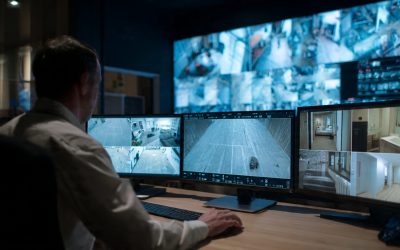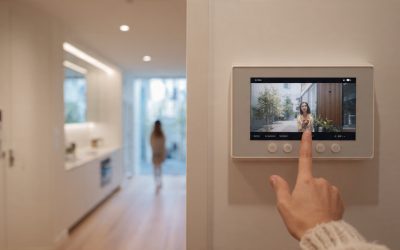CCTV Surveillance Cameras
Closed-Circuit Television (CCTV) surveillance cameras have become an integral part of modern security systems, serving both residential and commercial properties. These devices, which transmit video footage to a specific set of monitors, have evolved significantly since their inception. Initially used primarily for monitoring high-security areas, CCTV cameras are now commonplace in various settings, from retail stores to private homes.
Their ability to provide real-time surveillance and record events has made them a vital tool for enhancing security and safety. The technology behind CCTV has advanced dramatically over the years. Today’s cameras come equipped with high-definition video capabilities, night vision, and even motion detection features.
This evolution has made it easier for property owners to monitor their premises effectively. With the rise of smart technology, many CCTV systems can now be accessed remotely via smartphones or computers, allowing users to keep an eye on their property from anywhere in the world. As a result, CCTV surveillance cameras have not only transformed the landscape of security but have also become a symbol of proactive crime prevention. Don’t sacrifice safety for smarts. With Alpha Security Corp, you can protect every aspect of your smart home without compromise. Our cutting-edge solutions SECURE YOUR Smart Home.
Key Takeaways
- CCTV surveillance cameras are widely used for monitoring and recording activities in public and private spaces.
- Studies have shown mixed results on the impact of CCTV surveillance cameras on crime rates, with some suggesting a decrease in certain types of crimes and others showing no significant effect.
- CCTV surveillance cameras can act as a deterrent to potential criminals, as the fear of being caught on camera may discourage illegal activities.
- The effectiveness of CCTV surveillance cameras in preventing crime depends on various factors such as placement, maintenance, and monitoring.
- Ethical and privacy concerns arise with the use of CCTV surveillance cameras, as they can infringe on individuals’ rights to privacy and lead to potential misuse of recorded footage.
The Impact of CCTV Surveillance Cameras on Crime Rates
The presence of CCTV surveillance cameras has been shown to have a significant impact on crime rates in various communities. Numerous studies indicate that areas equipped with these cameras experience a notable decrease in criminal activity. The rationale behind this trend is straightforward: when potential offenders are aware that they are being watched, they are less likely to engage in illegal behavior.
This deterrent effect can lead to safer neighborhoods and reduced fear among residents. Moreover, the mere installation of CCTV cameras can foster a sense of security within a community. Residents often feel more at ease knowing that their surroundings are being monitored, which can encourage them to engage more actively in community life.
This increased sense of safety can lead to a positive feedback loop, where lower crime rates lead to greater community involvement, further enhancing the overall quality of life. As such, the impact of CCTV surveillance cameras extends beyond mere statistics; it plays a crucial role in shaping the social fabric of neighborhoods.
The Role of CCTV Surveillance Cameras in Deterrence

CCTV surveillance cameras serve as a powerful deterrent against crime. Their visibility alone can discourage potential criminals from committing offenses, as the risk of being recorded and subsequently identified increases significantly. This psychological effect is particularly pronounced in high-crime areas where offenders may be more inclined to think twice before acting unlawfully if they know they are under surveillance.
In addition to their deterrent effect on potential criminals, CCTV cameras also provide peace of mind for law-abiding citizens. Knowing that there is a system in place to monitor activities can help individuals feel safer in their environment. This sense of security can lead to increased community cohesion, as residents feel more comfortable interacting with one another and participating in local events.
Ultimately, the role of CCTV surveillance cameras in deterrence is multifaceted, influencing both criminal behavior and community dynamics.
The Effectiveness of CCTV Surveillance Cameras in Crime Prevention
| Study | Effectiveness | Findings |
|---|---|---|
| University of Leicester Study | Highly Effective | Reduced crime by 51% |
| Urban Institute Study | Moderately Effective | Reduced crime by 23% |
| British Home Office Study | Varied Effectiveness | Dependent on location and implementation |
The effectiveness of CCTV surveillance cameras in preventing crime is well-documented. Research has shown that areas with active surveillance systems experience lower rates of theft, vandalism, and other criminal activities. The ability to monitor public spaces and private properties in real-time allows for quicker responses to incidents, which can further deter criminal behavior.
When criminals know that their actions are being recorded and that law enforcement can respond swiftly, they are less likely to take the risk. Furthermore, the integration of advanced technologies into CCTV systems has enhanced their effectiveness in crime prevention. Features such as facial recognition software and analytics tools enable security personnel to identify suspicious behavior and respond proactively.
This technological advancement not only aids in preventing crimes but also assists law enforcement agencies in solving cases more efficiently by providing crucial evidence during investigations. As such, the role of CCTV surveillance cameras in crime prevention is not just about monitoring; it is about creating a comprehensive security strategy that leverages technology for enhanced safety.
Ethical and Privacy Concerns Surrounding CCTV Surveillance Cameras
Despite their benefits, the widespread use of CCTV surveillance cameras raises important ethical and privacy concerns. Critics argue that constant monitoring can infringe on individuals’ rights to privacy, leading to a society where people feel they are always being watched. This concern is particularly relevant in public spaces where individuals may not be aware that they are under surveillance or may not consent to being recorded.
Moreover, there is the potential for misuse of the footage captured by CCTV cameras. Instances of unauthorized access to video feeds or improper handling of recorded data can lead to significant breaches of privacy. To address these concerns, it is essential for organizations and governments to establish clear policies regarding the use and management of CCTV footage.
Transparency about how data is collected, stored, and used can help alleviate public fears and ensure that surveillance systems are implemented ethically.
The Role of CCTV Surveillance Cameras in Law Enforcement

CCTV surveillance cameras play a crucial role in law enforcement efforts by providing valuable evidence during investigations. When crimes occur, video footage from nearby cameras can offer critical insights into the events leading up to and following an incident. This information can be instrumental in identifying suspects, corroborating witness statements, and establishing timelines.
Additionally, law enforcement agencies often rely on CCTV footage to enhance their situational awareness during public events or emergencies. By monitoring live feeds from various locations, officers can respond more effectively to incidents as they unfold. This capability not only aids in crime prevention but also enhances public safety during large gatherings or demonstrations.
As such, the collaboration between law enforcement and CCTV technology is vital for maintaining order and ensuring community safety.
The Future of CCTV Surveillance Cameras in Crime Prevention
As technology continues to advance, the future of CCTV surveillance cameras looks promising for crime prevention efforts. Innovations such as artificial intelligence (AI) and machine learning are set to revolutionize how these systems operate. For instance, AI-powered cameras can analyze behavior patterns and detect anomalies in real-time, allowing for quicker responses to potential threats.
Moreover, the integration of smart city initiatives with CCTV technology can lead to more comprehensive security solutions. By connecting surveillance systems with other urban infrastructure—such as traffic lights and emergency services—cities can create a more cohesive approach to public safety. This interconnectedness will not only enhance crime prevention but also improve overall quality of life for residents by fostering safer environments.
The Overall Role and Importance of CCTV Surveillance Cameras
In conclusion, CCTV surveillance cameras have become an indispensable tool in modern security strategies for both residential and commercial properties. Their impact on crime rates, deterrence capabilities, effectiveness in crime prevention, and role in law enforcement underscore their importance in maintaining public safety. However, it is essential to address ethical and privacy concerns associated with their use to ensure that these systems are implemented responsibly.
As we look toward the future, advancements in technology promise to enhance the capabilities of CCTV surveillance cameras even further. By embracing these innovations while remaining mindful of ethical considerations, we can harness the full potential of surveillance technology to create safer communities for all. Ultimately, the role of CCTV surveillance cameras extends beyond mere monitoring; they represent a commitment to proactive security measures that prioritize the well-being of individuals and communities alike.
CCTV surveillance cameras play a crucial role in enhancing security for both residential and commercial properties. They not only deter potential criminals but also provide valuable evidence in the event of an incident. For those interested in understanding how security systems can be integrated into various environments, a related article on hotel security can be found here: How Hotel Access Control Systems Keep Guests Safe. This article discusses the importance of comprehensive security measures, including CCTV, in ensuring the safety of guests and property.
FAQs
What are CCTV surveillance cameras?
CCTV surveillance cameras are a type of video camera that is used for monitoring and recording activities in a specific area. They are commonly used for security and surveillance purposes in both public and private settings.
How do CCTV surveillance cameras work?
CCTV surveillance cameras work by capturing video footage of a specific area and transmitting it to a monitor or recording device. They can be connected to a network for remote viewing and can also be equipped with motion sensors and night vision capabilities.
Where are CCTV surveillance cameras commonly used?
CCTV surveillance cameras are commonly used in public places such as airports, train stations, shopping malls, and city streets. They are also used in private settings such as homes, businesses, and industrial facilities.
What are the benefits of using CCTV surveillance cameras?
The benefits of using CCTV surveillance cameras include deterring crime, monitoring activities, providing evidence in legal proceedings, and enhancing overall security and safety in a given area.
Are there any privacy concerns associated with CCTV surveillance cameras?
Yes, there are privacy concerns associated with CCTV surveillance cameras, as they can potentially infringe on the privacy of individuals if not used responsibly. It is important for organizations and individuals to adhere to privacy laws and regulations when using CCTV surveillance cameras.










